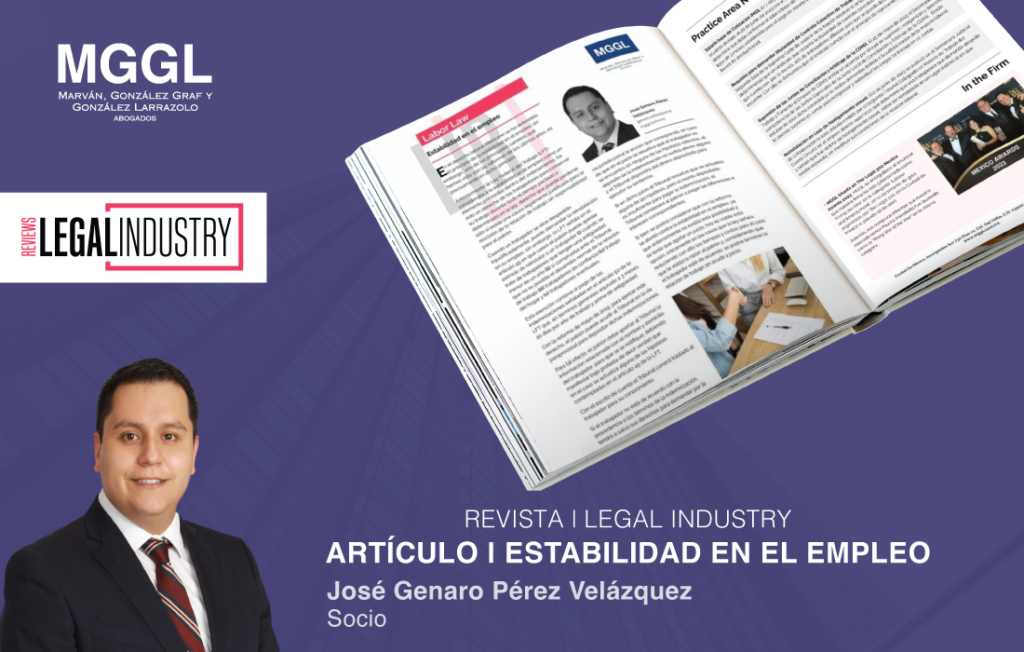Derived from the current Coronavirus pandemic (COVID-19) in different parts of the world, various measures have been taken to prevent its spread. In this context, an environment of uncertainty arises in the application of preventive measures that can be taken, and on what to do in the event of a possible declaration of health contingency by the Ministry of Health.
Article 42 Bis of the Federal Labor Law, contemplates the declaration of health contingency issued by the competent authorities as a cause for collective suspension of labor relations, mentioning the following:
“Article 42 Bis "In cases where the competent authorities issue a declaration of health contingency, in accordance with the applicable provisions, which involves the suspension of work, the provisions of Article 429, Section IV of this Law shall apply”.
Article 427, in conjunction with Article 429, Section IV, provides that in the event that the competent authority declares a health contingency, the employer is obliged to suspend work in the workplace, exempting the workers from going to work and the employer from paying wages. In such event, the Employer has obligation to provide its workers with an indemnity consisting of one day's general minimum wage applicable to each day that the contingency occurs and this for a maximum period of one month.
“Article 427 These are causes for the temporary suspension of employment relations in a company or establishment:
(…)
VII. The suspension of work or jobs, declared by the competent health authority, in cases of health contingency".
Article 429 .- In the cases referred to in Article 427, the following rules shall be observed
(…)
IV. In the case of fraction VII, the employer shall not require the approval or authorization of the Court and shall be obliged to pay his workers compensation equivalent to one day's general minimum wage in force for each day of suspension, which may not exceed one month.
La Ley Federal del Trabajo, contempla a la declaratoria de contingencia sanitaria emitida por las autoridades competentes como una causa de suspensión colectiva de las relaciones de trabajo

Knowing this, we must take into account the following possible scenarios:
1. Until a general health contingency declaration is issued, the employer cannot unilaterally suspend the effects of the labor relations; therefore, he is obliged to pay his workers their full salary. This does not mean that there is a prohibition for the employer to allow his workers to stop going to work, that is, the employer may allow his workers to stop going to work, but he may not affect their wages, benefits or rights.
2. In accordance with the above, the practice known as "Home Office" could be taken as an alternative, by means of which, the jobs that allow it by their nature, could be provided remotely from the place that the worker wishes, by means of a temporary agreement with the employees, establishing the scope of the work provided, but without the employer being able to reduce or affect the salary, benefits or rights of his workers.
3. In the event that the competent authority issues a general health contingency declaration, such declaration shall describe the scope and type of services that shall be suspended, and the employer would be obligated to suspend work generally, exempting the workers from going to work and the employer from paying wages, with the latter having the obligation to cover its workers with compensation consisting of one day's general minimum wage for each day the contingency passes, for a maximum period of one month. The general minimum enforceable daily wage is currently set at $123.22 Pesos, and $185.56 Pesos for the north border of the country. After this period, there will be no obligation to render services by the worker or to pay any salary by the employer until the contingency decreed subsists. Of course, the employer may implement any alternative to support and benefit the employees, even during the formal suspension of the services.
4. If the competent authority issues a general health contingency declaration and if the nature of the work so permits, the alternative practice called "Home Office" may be established by mutual agreement between the employer and the worker, whereby, in the absence of an express prohibition for either the employer or the worker, it could be agreed to continue the provision of services by the worker remotely, that is, without the worker being obliged to go to workplace to provide services, in which case the worker's wages and benefits would be covered in full, without the need to cover the compensation referred to in article 429, section IV, of the aforementioned legal provisions.
It should be mentioned that the health contingency declaration should determine the scope and types of work to be suspended. There is the possibility of suspending only the work of women and minors under 18 years of age in workplaces; this is only if the declaration itself so determines, as provided for in our labour law in articles 168 and 175. In this case, the employer would be prohibited from using the work of women and minors under 18 years of age, but the salary, benefits or rights of such workers may not be prejudiced.
In case the contingency subsists for a period longer than one month as established in article 429, section IV of the Federal Labor Law, the provisions of articles 431 and 432 of the same legal system shall apply, which mention the following:
Article 431.- The union and the workers may request every six months the Conciliation and Arbitration Board to verify whether the causes that led to the suspension still exist. If the board decides that they do not subsist, it shall set a term of no more than thirty days for the resumption of the work. If the employer does not resume work, the employees shall be entitled to the indemnification set forth in article 50.
Article 432.- The employer shall announce the date for the resumption of the work at all times. He shall give notice to the union, and shall call by such means as may be appropriate, in the opinion of the Conciliation and Arbitration Board, the workers who were employed in the company when the suspension was decreed, and shall be required to reinstate them in the positions they previously occupied, provided that they appear within the period set by the same employer, which may not be less than thirty days from the date of the last call.
If the employer does not comply with the obligations set forth in the preceding paragraph, the workers may exercise the actions referred to in Article 48.
The provisions of this article shall not be applicable in the case referred to in section VII of article 427. In this case, the workers will be obliged to resume their work as soon as the contingency is over.
According to the legal provisions transcribed, in the event that the contingency exceeds the period of one month and the work relationship remain suspended, including the obligation of the worker to provide services for the company and the obligation of the employer to pay wages, the latter would have no additional payment obligation until work is resumed, as soon as the health contingency declaration is lifted.
In the event that, in any work center, it is considered that there are risks to the health of the workers and if a general declaration of contingency has not yet been issued, the employer could submit to the consideration of the Conciliation Board the suspension of work in the work center and the Board would have to determine whether it is appropriate for the employer to temporarily suspend work.
Notwithstanding the above, independent temporary agreements may be negotiated with the employees and/or unions to suspend the services under the terms and conditions of operations and compensations applicable in each particular case.




